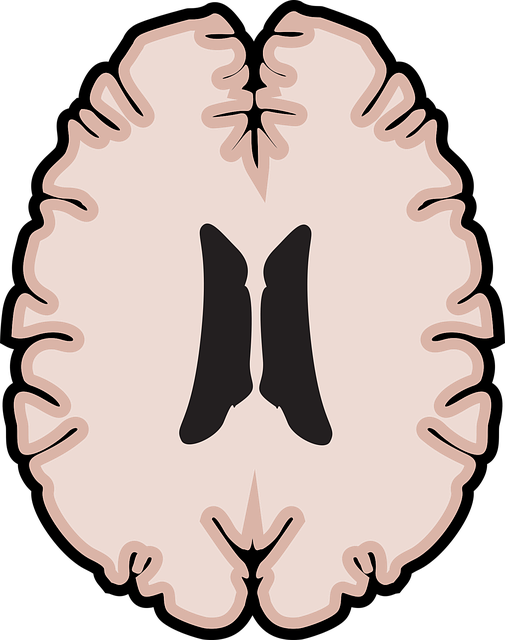Mental illness diagnosis is complicated by overlapping symptoms and cultural differences, making Northglenn Acceptance and Commitment Therapy (ACT) a revolutionary approach. ACT teaches mindfulness, acceptance, and aligning actions with values to improve patient understanding and engagement, enhancing diagnostic accuracy. By integrating empathy, non-judgmental observation, and crisis intervention, ACT goes beyond surface symptoms for tailored interventions. Stigmatized communities benefit from ACT programs promoting open conversations, educational workshops, and support groups to demystify mental health conditions and encourage timely interventions.
Mental illness diagnosis accuracy is a critical aspect of patient care, yet challenges persist. This article explores strategies to improve diagnostic precision, focusing on the unique approach of Northglenn Acceptance and Commitment Therapy (ACT). We delve into the complexities of mental health assessments, highlighting the need for comprehensive evaluations. Additionally, we discuss the role of community awareness in fostering an environment that supports accurate diagnosis and effective treatment, emphasizing the impact of innovative therapies like ACT.
- Understanding Mental Illness Diagnoses: Challenges and Gaps
- Northglenn Acceptance and Commitment Therapy (ACT): An Innovative Approach
- Enhancing Diagnosis Accuracy through Comprehensive Evaluation
- Promoting Community Awareness and Support for Accurate Mental Health Care
Understanding Mental Illness Diagnoses: Challenges and Gaps

Mental illness diagnoses often face significant challenges and gaps that hinder accurate identification and treatment. One of the primary issues is the complexity of symptoms, which can overlap across various disorders, making differentiation difficult. For instance, Northglenn Acceptance and Commitment Therapy (ACT) practitioners encounter patients presenting with a mix of anxiety, depression, and stress-related symptoms, requiring nuanced assessment and specialized techniques.
Additionally, cultural nuances play a critical role in diagnosis. Different communities may hold unique perspectives on mental health, influencing how individuals express and perceive their experiences. Healthcare Provider Cultural Competency Training is essential to address these disparities, ensuring that providers can accurately interpret symptoms within diverse cultural contexts. Incorporating strategies like active listening and collaborative decision-making improves diagnosis accuracy and fosters better patient outcomes.
Northglenn Acceptance and Commitment Therapy (ACT): An Innovative Approach

In recent years, Northglenn Acceptance and Commitment Therapy (ACT) has emerged as a revolutionary approach to mental health treatment. This therapeutic method focuses on helping individuals accept their emotions, develop mindfulness skills, and commit to actions that align with their personal values—all while reducing avoidance behaviors that can worsen mental illness. By fostering a deeper understanding of the mind-body connection, ACT empowers people to manage stress, anxiety, depression, and other conditions more effectively.
Integrating Burnout Prevention Strategies for Healthcare Providers and Mind Over Matter Principles, Northglenn ACT encourages patients to embrace their internal experiences without judgment. This shift in perspective can significantly enhance Mental Wellness, enabling individuals to lead more balanced and fulfilling lives. Through dedicated practices and ongoing support, this innovative therapy promises to improve mental illness diagnosis accuracy by promoting better patient understanding and engagement in their treatment journey.
Enhancing Diagnosis Accuracy through Comprehensive Evaluation

Improving mental illness diagnosis accuracy involves a shift towards comprehensive evaluations that go beyond surface-level symptoms. Traditional methods often rely on patient self-report, which can be influenced by personal bias or difficulty articulating experiences. Northglenn Acceptance and Commitment Therapy (ACT), for instance, integrates mindfulness practices and empathy building strategies to foster more nuanced understanding. By encouraging individuals to observe their thoughts and emotions without judgment, ACT facilitates a deeper exploration of underlying causes and contextual factors contributing to distress.
This expanded approach incorporates not only the individual’s current presentation but also their personal history, relationships, and coping mechanisms. Crisis intervention guidance is incorporated to support individuals during acute periods while building resilience through evidence-based techniques. Ultimately, these holistic evaluation methods aim to improve diagnostic accuracy by providing a more complete picture of the person, leading to tailored interventions that address the unique needs and complexities of each individual.
Promoting Community Awareness and Support for Accurate Mental Health Care

In many communities, mental illness remains stigmatized, leading to underreporting and misdiagnosis. This is where initiatives focused on community awareness play a pivotal role in promoting accurate mental health care. By fostering open conversations about mental well-being, Northglenn Acceptance and Commitment Therapy (ACT) programs are helping to demystify various conditions. These efforts aim to boost confidence among individuals struggling with their mental health, encouraging them to seek support without fear of judgment. Through educational workshops, local support groups, and community outreach, residents are learning about the signs and symptoms of common mental disorders, fostering an environment that supports emotional healing processes.
Additionally, these awareness campaigns provide a platform for sharing successful recovery stories, offering hope and inspiration to those facing challenges like anxiety. The ultimate goal is to create a community where people feel empowered to discuss their experiences openly, seek timely interventions, and receive appropriate treatment, such as ACT therapy, thereby alleviating symptoms of anxiety and other mental health issues.
Mental illness diagnosis accuracy has long been a complex issue, but with innovative approaches like Northglenn Acceptance and Commitment Therapy (ACT) and enhanced evaluation methods, we can improve care. By promoting community awareness and support, we can create an environment where accurate mental health diagnoses become the norm. Through these efforts, we move closer to ensuring effective and personalized treatment for all individuals navigating their mental health journeys.











